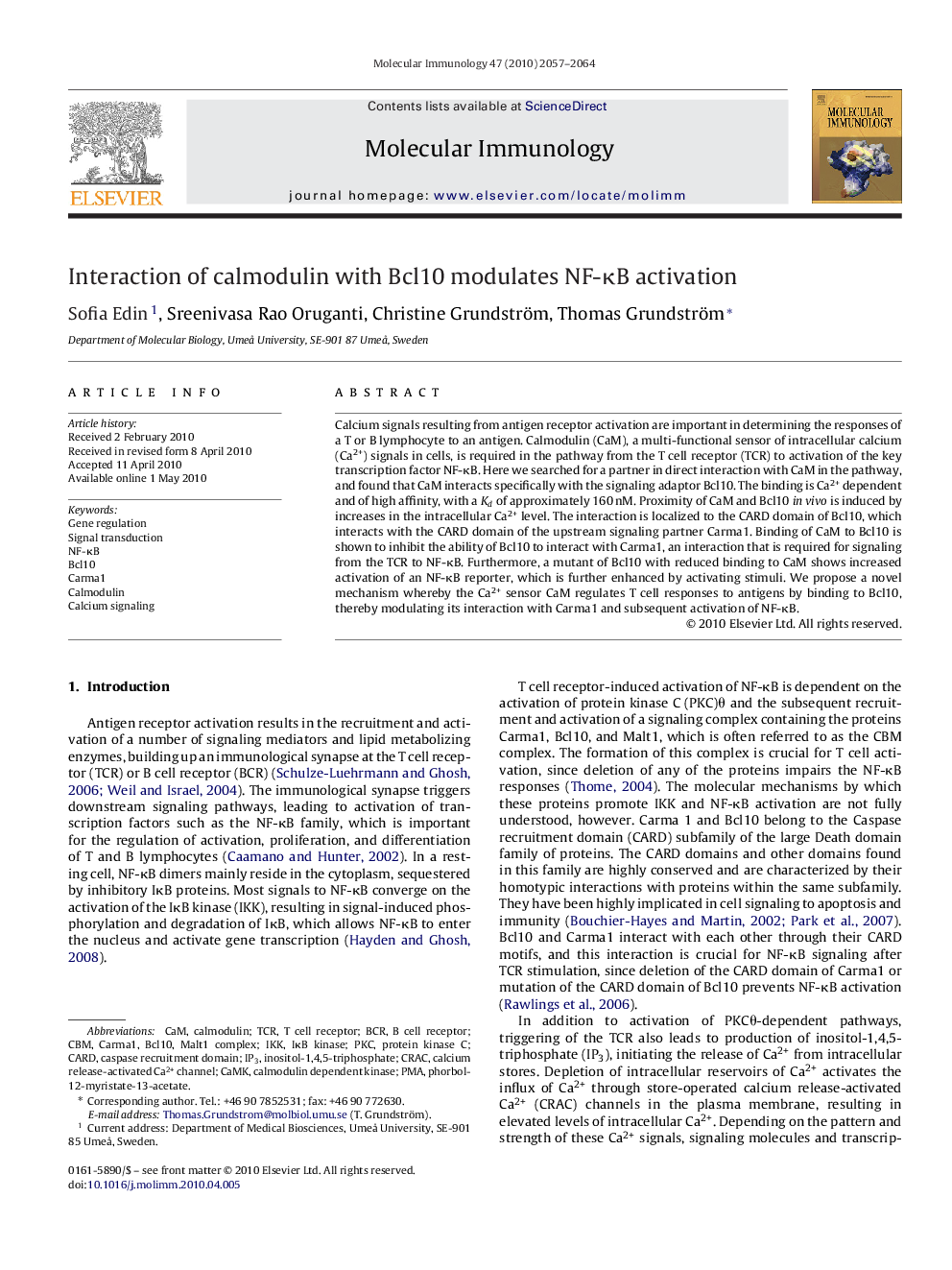| Article ID | Journal | Published Year | Pages | File Type |
|---|---|---|---|---|
| 2832163 | Molecular Immunology | 2010 | 8 Pages |
Calcium signals resulting from antigen receptor activation are important in determining the responses of a T or B lymphocyte to an antigen. Calmodulin (CaM), a multi-functional sensor of intracellular calcium (Ca2+) signals in cells, is required in the pathway from the T cell receptor (TCR) to activation of the key transcription factor NF-κB. Here we searched for a partner in direct interaction with CaM in the pathway, and found that CaM interacts specifically with the signaling adaptor Bcl10. The binding is Ca2+ dependent and of high affinity, with a Kd of approximately 160 nM. Proximity of CaM and Bcl10 in vivo is induced by increases in the intracellular Ca2+ level. The interaction is localized to the CARD domain of Bcl10, which interacts with the CARD domain of the upstream signaling partner Carma1. Binding of CaM to Bcl10 is shown to inhibit the ability of Bcl10 to interact with Carma1, an interaction that is required for signaling from the TCR to NF-κB. Furthermore, a mutant of Bcl10 with reduced binding to CaM shows increased activation of an NF-κB reporter, which is further enhanced by activating stimuli. We propose a novel mechanism whereby the Ca2+ sensor CaM regulates T cell responses to antigens by binding to Bcl10, thereby modulating its interaction with Carma1 and subsequent activation of NF-κB.
